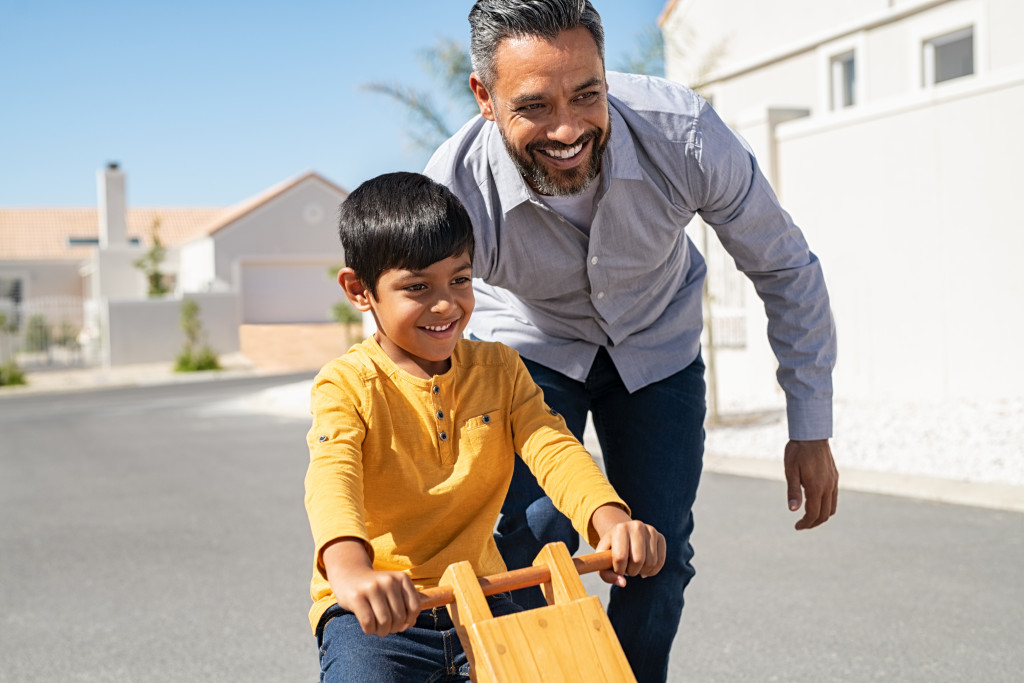- Through activities like cooking and gardening, real-world learning enhances skills beneficial for a child’s overall development and life.
- Cooking teaches problem-solving, organization, and responsibility, while gardening instills a love for nature and science.
- Learning new languages like Spanish, French, and Mandarin broadens a child’s perspective, enriches their worldview, and offers a competitive edge.
- Integrating these real-world learning opportunities into a child’s routine can be fun, engaging, and highly educational.
As a parent, you want your child to have the best possible education, but you also want them to experience real-world learning. Real-world learning can help your child develop important skills that will benefit them in school and in life. It can also be a fun and engaging way for your child to learn. Here are some ways you can integrate real-world learning into your child’s routine.
Cooking Together
Cooking is a great way for your child to learn about math, science, and nutrition. You can involve your child in meal planning, grocery shopping, measuring ingredients, and following recipes. Here are important life skills that your child can learn through cooking:
Problem-Solving
While cooking, your child will inevitably encounter challenges — a missing ingredient, a burnt toast, or a recipe that doesn’t turn out as expected. These are perfect opportunities for problem-solving. Encourage your child to think creatively and come up with solutions. This experience can help strengthen their analytical thinking abilities and resilience, both of which are vital skills for the real world.
Organization
Cooking requires careful organization and planning, from gathering the necessary ingredients to following the steps of a recipe in the correct order. This process can help your child hone their organizational skills and learn the importance of planning. By understanding how to structure their time and efforts efficiently, they will be better equipped to manage daily tasks and responsibilities in their personal and future professional life.
Responsibility
Cooking tasks such as turning off the stove after use, cleaning up the kitchen, or even following safety precautions while handling kitchen equipment all teach your child about responsibility. They learn to understand the consequences of their actions and the importance of fulfilling duties, which can translate into becoming more responsible in other aspects of life. This experience helps them grasp the concept of accountability, a critical trait that is highly valued in the real world.

Gardening
Gardening is a fun and educational activity that can teach your child about nature, science, and responsibility. Your child can learn how plants grow, how to care for them, and the importance of healthy eating.
Gardening can also be a great way to get your child outside and active. For instance, they can help you plant vegetables, tend to a flower garden, or even construct their own compost bin. All of these activities provide an opportunity for your child to get hands-on experience with nature and learn how to appreciate its beauty.
If possible, make sure that your child can have their own patch of land where they are in charge and get to watch the cycle of life firsthand. This allows them to experience how things grow, develop, and change over time — a valuable lesson in itself.

Taking Language Classes
Learning a new language opens up a world of possibilities for your child. It not only boosts cognitive development but also fosters empathy and cultural understanding. Immersing your child in a different language and culture can provide them with a broader perspective and enrich their worldview. Language classes can range from traditional classroom settings to interactive online platforms. Here are some languages to consider:
Spanish
As one of the most spoken languages in the world, Spanish offers a gateway to numerous cultures across the globe. Learning Spanish not only opens up opportunities for communication with a vast number of people but it also provides a deeper understanding of diverse customs, traditions, and histories.
The vibrant and rich cultural tapestry that the Spanish-speaking world offers can enhance your child’s global awareness and empathy. It also has practical benefits, as being bilingual in English and Spanish is increasingly sought after in many professional fields.
French
French is a widely spoken language across the world, not just in France but in regions of Canada, Africa, and more. Encouraging your child to learn French can help them gain a global perspective and understand diverse cultures.
Besides, it can offer them a competitive edge in future careers. Look out for effective French classes that use fun, immersive techniques to make learning enjoyable and fruitful.
Mandarin
As the second most spoken language in the world, Mandarin offers an entry into a rich and ancient culture. Learning Mandarin can provide a unique perspective on Chinese history, literature, and philosophy.
Additionally, as China continues to grow as a global economic powerhouse, Mandarin proficiency becomes an increasingly valuable asset. Various language programs adopt innovative approaches to teaching Mandarin, using visual aids, interactive games, and cultural immersion activities.
Integrating real-world learning into your child’s routine can help them develop important skills that will benefit them in school and in life. Cooking, gardening, volunteering, traveling, and entrepreneurship are just a few ways you can incorporate real-world learning into your child’s routine. These activities can be fun and engaging for your child while also providing valuable learning experiences. So, start planning some real-world learning activities today and watch your child thrive.
